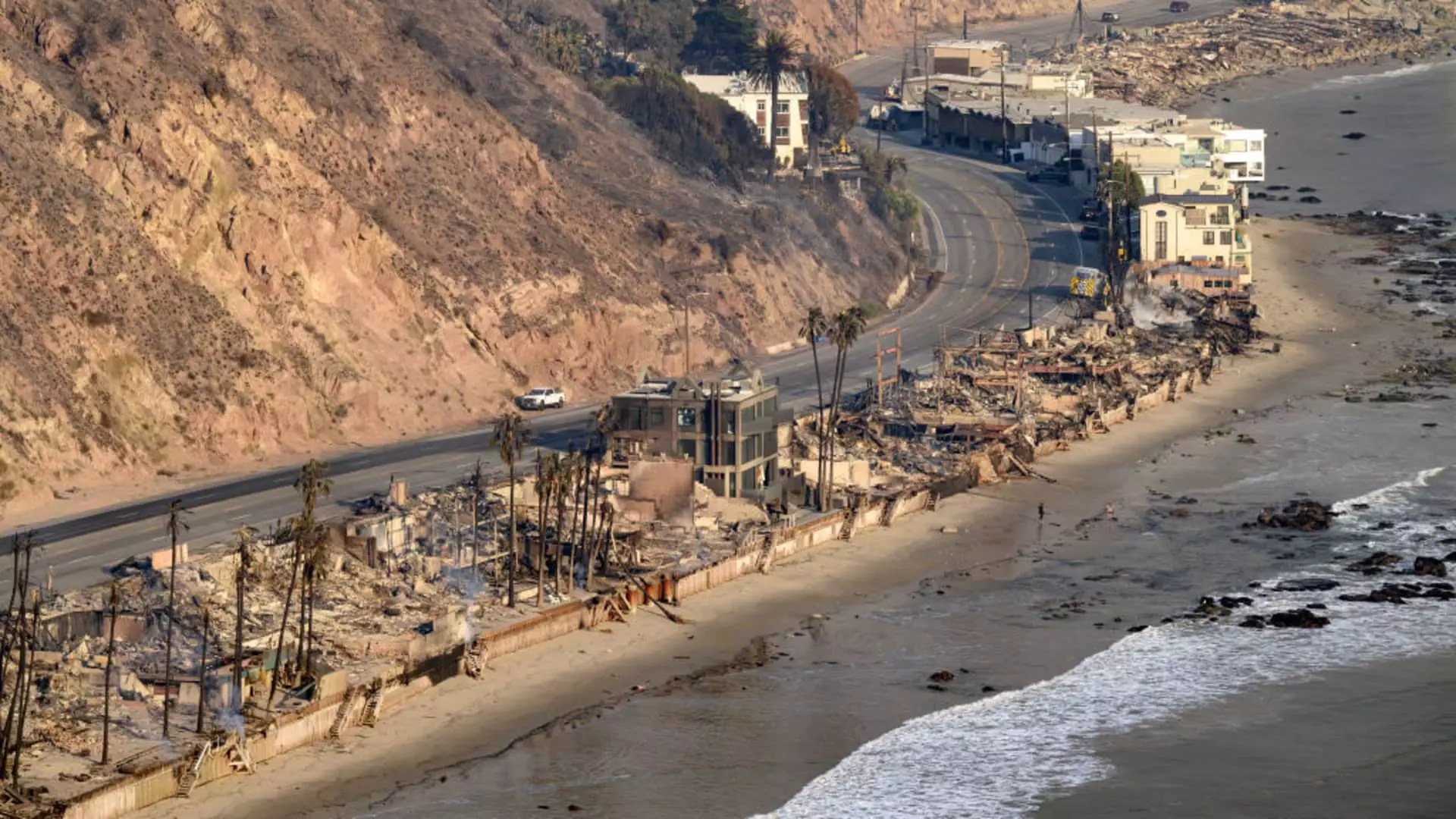Southern California is currently grappling with the devastating effects of wildfires that have ravaged significant parts of Los Angeles. In response to these environmental crises, airlines such as American Airlines, United Airlines, Southwest Airlines, and JetBlue Airways have stepped in to help affected travelers by extending travel waivers. This proactive measure aims to eliminate the burden of change fees for passengers who have booked flights to Los Angeles, an area that is experiencing critical power outages and water shortages amidst the disaster.
The ongoing wildfires have destroyed over 10,000 homes and other structures, making air travel to and from the city both uncertain and risky. Although major airports like Hollywood Burbank, Los Angeles International Airport (LAX), Ontario International Airport, and John Wayne Airport have reported normal operations as of Friday, the impact of the fires continues to linger. Many areas in the vicinity are still under evacuation orders, and local residents in severely impacted locations like Pacific Palisades face health risks from contaminated water, forcing them to rely on bottled water and boiling methods for drinking.
In light of these developments, airlines are managing the situation with a range of flexible rebooking options aimed at easing travelers’ concerns. American Airlines has publicly announced that travelers booked to or from the mentioned airports can reschedule their flights without incurring change fees or fare differences. This relief extends up to January 20, providing customers with ample time to adjust their travel plans as the situation unfolds.
Additionally, Southwest Airlines expressed that the wildfires could impact their flight services and similarly allows customers to rebook their flights without penalties, up to 14 days from the original travel dates. They have even gone a step further by offering rebooking options to other California destinations such as Palm Springs, Santa Barbara, and San Diego for those who prefer to change their travel plans altogether.
The Broader Impact on Travel Demand
While airlines are accommodating impacted travelers, the wildfires have undeniably influenced travel demand in the Los Angeles area. Delta Air Lines, one of the key players in the aviation sector, has noted a decline in sales for flights to Los Angeles, a city that typically attracts a robust mix of both business and leisure travelers. Glen Hauenstein, Delta’s president, stated that although there is not an alarming uptick in cancellations, daily monitoring shows a concerning drop in sales. This trend appears to be an immediate consequence of the wildfires, impacting the overall travel momentum.
Hauenstein acknowledged the historical resiliency of travel demand following natural disasters, suggesting that there is often an increase in demand for air travel as areas begin to rebuild. He emphasized that while the short-term effects can be challenging, airlines have experienced recovery after previous calamities such as hurricanes and floods.
In the aftermath of this turbulent period, it is vital for both travelers and airlines to remain optimistic about recovery. Airlines possess the expertise and infrastructure to bounce back from these setbacks, fostering an environment conducive to revitalizing travel demand in the wake of natural disasters. With conditions improving, many expect that travelers will return to Los Angeles once the situation normalizes, bringing renewed business opportunities and tourism growth to the area.
Nonetheless, the challenges faced by residents of Los Angeles during this time are not to be overlooked. The criticality of the wildfires extends beyond travel logistics, affecting countless lives and communities that require support. As airlines navigate this crisis with flexibility and compassion, it is also crucial for individuals to prioritize safety and well-being in their plans while the impacts of the wildfires continue to unfold. The resilience of both the airline industry and affected communities will be tested, but with concerted efforts, there is potential for recovery and a return to normalcy in the not-so-distant future.


Leave a Reply